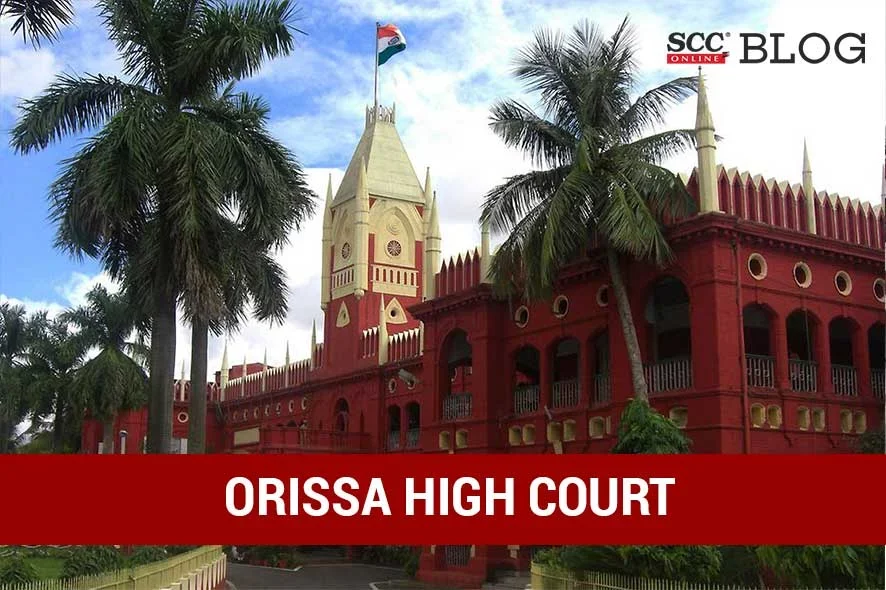Orissa High Court: In a Writ Petition under Article 226 of the Constitution of India in the form of Public Interest Litigation (‘PIL’) wherein the petitioner challenged the notification of the Reserve Bank of India dated 19-05-2023 for exchange of Rs. 2000 Bank notes, the Division Bench of S.K. Sahoo, J. and Murahari Shri Raman, J. dismissed the petition calling it a publicity interest litigation in the garb of public interest.
Background
In the matter at hand, the petitioner had challenged the notification of Reserve Bank of India (‘RBI’) dated 19-05-2023 on the grounds that the RBI has not issued any guidelines for the exchange of Rs. 2000 banknotes which would have checked the unlawful entry of persons to the banking system and that a non-account holder can also exchange Rs. 2000 banknotes up to a limit of Rs 20,000 at a time at any bank branch. The petitioner alleged that this instruction of RBI is threat to the economy and was made only for the encouragement of converting black money into white as no documentation was done and no identity card was checked. The petitioner wanted RBI to make necessary changes in the press release like ascertaining the limit of exchange by a person per day in cash and to not make the requisition slip with full details like mobile number, Aadhar card number, source of income, PAN card as such persons who have these detail can be assumed to have surplus money and the rest of 81 crores having free ration will not come under this purview. The petitioner wanted an explanation as to why only Rs. 2000 notes were expired and not of any other denomination or were there any checks and balances followed in this exchange policy procedure to catch black money holders.
Decision
The Court referred to the decision of the Delhi High Court in Aswini Kumar Upadhyay v. Union of India wherein the same notification dated 19-05-2023, issued by the RBI was challenged, and it was said that the decision of the Government is only to withdraw Rs. 2000 denomination banknotes from circulation for the reason that the purpose of issuing these denominations has achieved its purpose which was to meet the currency requirement of the economy in an expeditious manner in November, 2016 when all Rs. 500 and Rs. 1000 denomination banknotes were declared to be not legal tender. Banknotes of Rs. 2000 shall continue to be a legal tender and this policy is only for the exchange of banknotes having denomination of Rs. 2000 with other banknotes. In order to facilitate the exchange of Rs. 2000 denomination banknotes with other denomination banknotes, the Government has given a window of four months to the citizens and in order to avoid inconvenience to citizens, the Government is not insisting of providing any kind of identification and this decision of the Government is purely a policy decision and Courts should not sit as an Appellate Authority over the decision taken by the Government.
The Court refers to the Judgment of Supreme Court regarding the scope of interference in the economic policy decision of the Government in Vivek Narayan Sharma (Demonetisation Case-5 J.) v. Union of India, wherein it was held that he Courts must defer to legislative judgment in matters relating to social and economic policies and must not interfere unless the exercise of executive power appears to be arbitrary. The Courts not have the necessary competence and expertise to adjudicate upon such economic issues and it should be best left to the wisdom of experts. It was further said that in such matters, it will not be possible for the Court to assess or evaluate what would be the impact of the impugned action of demonetization as the Court did not possess the expertise to do so. In such matters, legislative and quasi-legislative authorities are entitled to a free play, and unless the action suffers from patent illegality, manifest or palpable arbitrariness, the Court should be slow in interfering with the same.
The Court perused the writ petition and noted the main grounds taken by the petitioner to challenge the RBI notification dated 19-05-2023 and said that the Law is well settled that a public interest litigation is a weapon which has to be used with great care and circumspection and the Judiciary has to be extremely careful to see that behind the beautiful veil of public interest, a publicity seeking is not lurking. It must be used as an effective weapon in the armory of law for delivering social justice to the citizens. It should be aimed at redressing the genuine public wrong or public injury and should not be publicity oriented, which is detrimental to the public interest at large. A publicity interest litigation should be nipped in the bud so that valuable time of the Court is saved which can be effectively utilized in reducing huge pendency of cases.
Therefore, considering the decision of the Supreme Court regarding the scope of interference in the economic policy decision of the Government and the averments taken in the writ petition the Court viewed that the present writ petition is a publicity interest litigation in the garb of public interest and thus, it was not inclined to entertain the same. Accordingly, the writ petition, being devoid of merits, was dismissed by the Court.
[Smt. Jayanti Das v. Union of India, 2023 SCC OnLine Ori 3219, Order Dated: 06-06-2023]
Advocates who appeared in this case :
For the Petitioner: Advocate BK Ragada;
For the Respondents: Deputy Solicitor General of India Prasanna Kumar Parhi.






